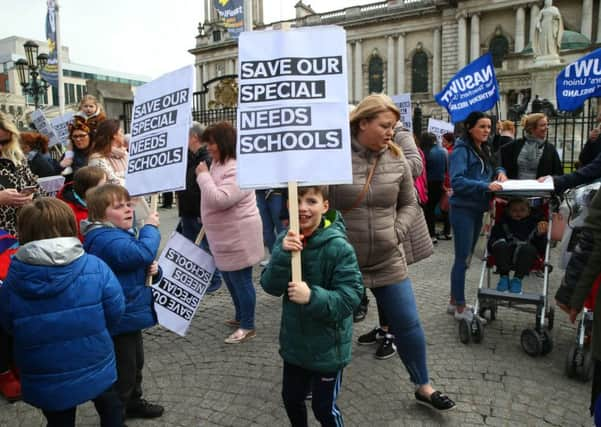Weir: unelected decisions second best for schools


DUP MLA Peter Weir was speaking after Stormont’s Department of Education confirmed that it believes a senior civil servant can close down schools if there is no education minister in place.
However, the Education Authority, the body which actually employs teachers, has said it believes only a minister can make such a decision.
Advertisement
Hide AdAdvertisement
Hide AdThe confusion comes as plans are afoot to radically change special needs education in Belfast.
Last month it emerged that the Education Authority is planning to close and merge seven of ten special schools in Belfast and replace them with larger special ‘super schools’, with each of the new schools expected to admit pupils from ages three to 19 with a range of widely differing disabilities, unlike the more specialised schools now in place.
DUP MLA Peter Weir said he believes the department of education do, in fact, have the authority to close a school even without the acquiescence of an elected MLA as minister.
He described this as being “down the pecking order” in terms of the preferred options for deciding crucial proposals for the schools estate, but better than a total lack of decision-making.
Advertisement
Hide AdAdvertisement
Hide AdMr Weir explained: “The department does have the power, but in terms of the point about accountability, I believe it is a fair point.
“It is our position in the DUP that there should be ministers in place. We didn’t believe it was right for the executive to be brought down and we are ready to form an executive tomorrow.
“That is the best possible situation. In the absence of that anything is second best.”
He continued: “In the broader context of the school estate, the situation where simply no decisions can be taken for a period of time can’t be allowed.
Advertisement
Hide AdAdvertisement
Hide Ad“There does need to be decisions taken with regards to development proposals, with regards to the school estate.
“If you are looking at the hierarchy of decision making options, having a situation in which the civil service simply takes the decision, it is down the pecking order.”
Mr Weir added: “The only worse situation would be if nobody was able to take a decision.”